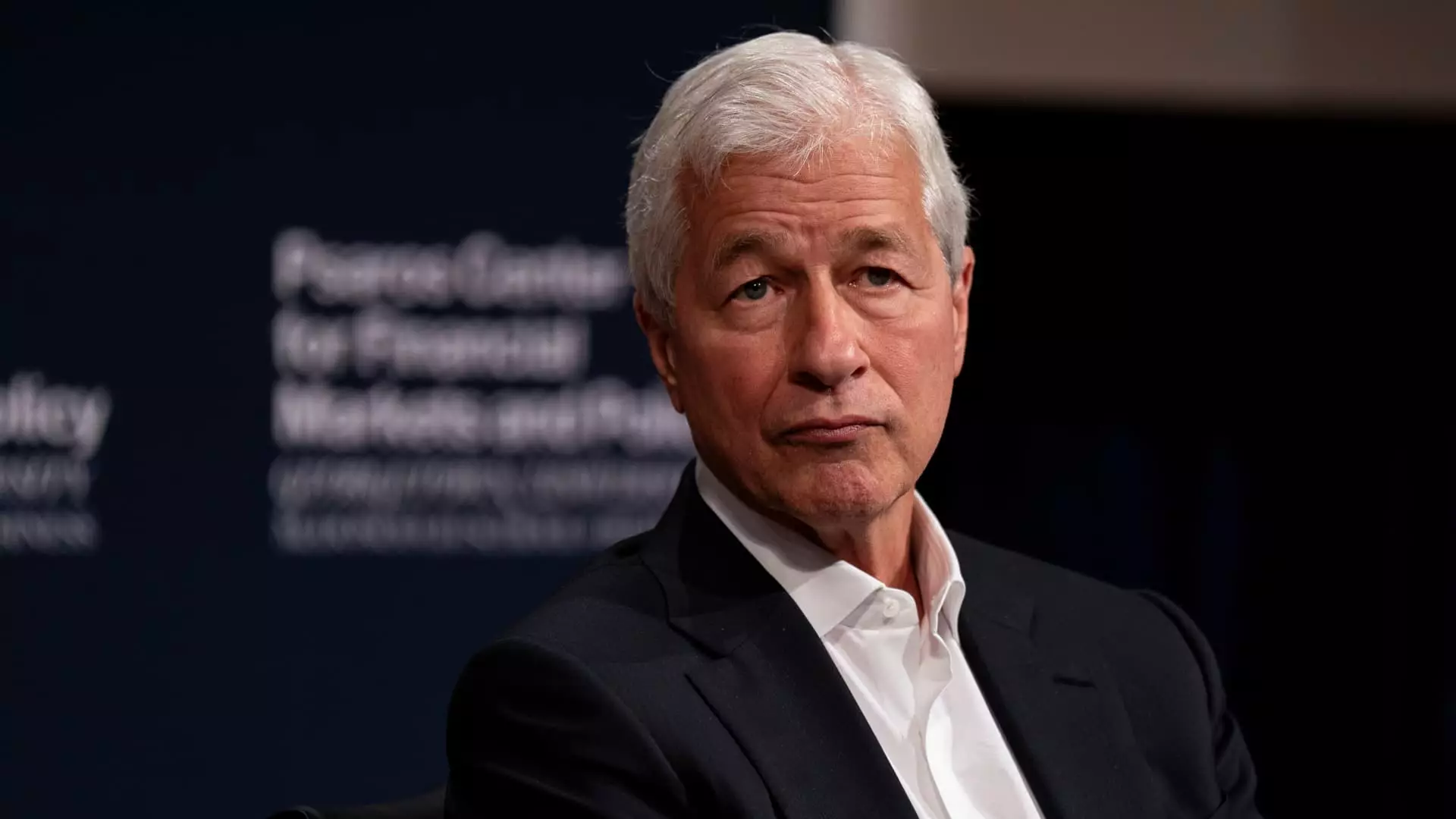In recent discussions surrounding economic policy, the topic of tariffs has emerged as a contentious yet pivotal issue, especially with the potential actions of the current U.S. administration. On one side of the argument, influential financial leaders, including JPMorgan Chase CEO Jamie Dimon and Goldman Sachs CEO David Solomon, have presented a somewhat optimistic view of tariffs, suggesting their potential utility in securing better trade agreements and fostering national security. This article delves into the nuanced perspectives shared by these executives and explores the broader economic implications of imposing tariffs on U.S. trading partners.
At the World Economic Forum in Davos, Jamie Dimon articulated a view that has sparked considerable debate: that tariffs, if employed judiciously, could serve as a beneficial economic tool rather than an outright negative force. Dimon argued that while tariffs could introduce inflationary pressures, they might be justified under the auspices of national security and economic rebalancing. His assertion highlighted a critical perspective—that the overarching benefits of tariffs could outweigh the immediate economic drawbacks, particularly if these measures successfully prompt trading partners to renegotiate unfavorable agreements.
This pragmatic approach raises significant questions regarding the actual implementation of tariffs. Dimon emphasized the importance of how tariffs are introduced and managed, suggesting that their economic impact largely depends on the strategic objectives behind their imposition. This introduces the idea that tariffs can act as both a defensive strategy to protect national interests and an offensive tactic in the complex arena of international trade negotiations.
Despite the potential advantages mentioned by Dimon, the fear of escalating into a global trade war persists. Tariffs can disrupt established trading relationships and may inadvertently lead to a rise in consumer prices. As the economic environment becomes more volatile, the risks associated with such a tit-for-tat exchange increase. Goldman Sachs’ David Solomon echoed these sentiments, noting that while rebalancing trade agreements could ultimately benefit U.S. growth, the success of this strategy hinges on the speed and thoughtfulness of implementation.
Furthermore, the conversations around tariffs are set against a background of a substantial trade deficit. The United States’ trade imbalance, particularly with entities like the European Union and China, has raised eyebrows and prompted discussions on protectionist measures. Yet, it’s vital to analyze the potential long-term impacts of these tariffs on inflation, which could undermine the favorable growth metrics that they aim to achieve.
Another aspect to consider is the reaction of the financial markets to tariff discussions. Unlike the optimistic perspectives of Dimon and Solomon, market indicators present a more cautious outlook. Following the news regarding potential tariffs, the U.S. dollar has shown signs of weakening. This reaction suggests that investors are wary of the broader implications that such policies may bring. If tariffs lead to strained relationships with international partners, the consequences could ripple throughout the global economy, affecting everything from foreign investment to currency stability.
Dimon acknowledged the intricate relationship between tariffs and currency dynamics, emphasizing that while tariffs can influence the value of the dollar, the primary concern should be maintaining economic growth. Investors may find themselves navigating a landscape marked by uncertainty, balancing the potential for restructured trade agreements with the risks posed by retaliatory tariffs and inflationary pressures.
The perspectives shared by leading financial figures underscore a complex interplay between national policy, economic health, and international relations. While tariffs may be viewed as an instrument for achieving desirable economic outcomes, their implementation must be approached with caution. Building a balanced approach that prioritizes constructive dialogue with trading partners, along with effective domestic economic strategies, is essential to ensure that the United States can navigate these challenging waters successfully.
The debate over tariffs will likely continue, and as such discussions develop, they will shape not only the future of U.S. trade but also the global economic landscape at large. Diligence from policymakers and business leaders alike will play a critical role in determining the effectiveness of tariffs as a tool for growth and security in the modern economy.

